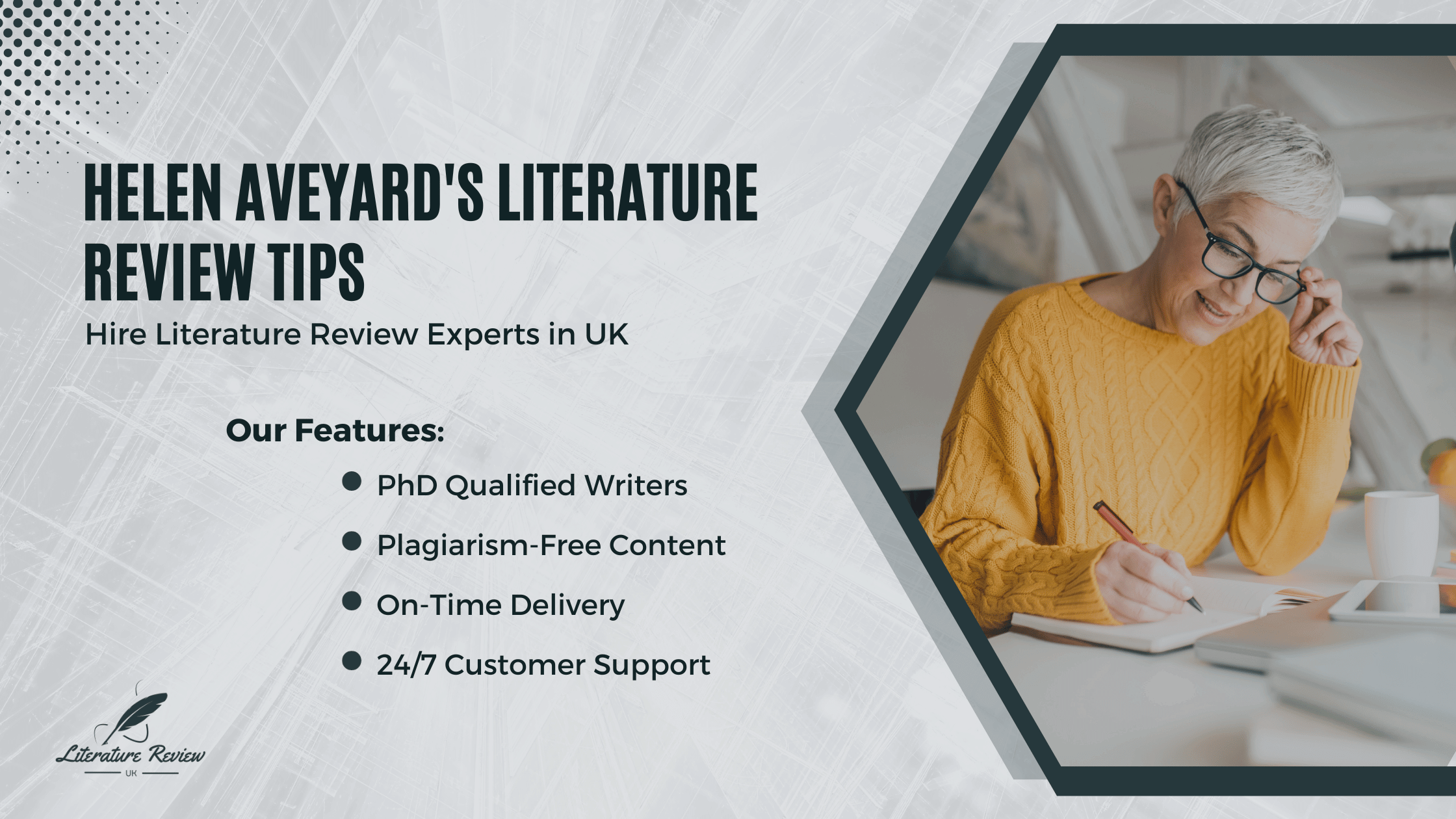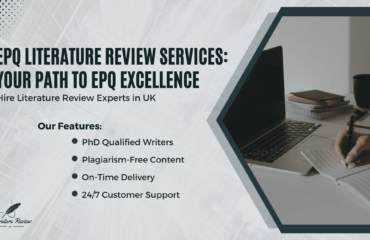
In the world of academic research, particularly in the United Kingdom, Helen Aveyard’s name resonates as a luminary in the art of conducting literature reviews. Renowned for her expertise, she has authored works that have become essential guides for students and researchers alike. In this comprehensive guide, we will delve into Helen Aveyard’s literature review tips and explore how to apply them to your research endeavors in the UK.
Understanding the Impact of Helen Aveyard’s Work
Before we dive into the specifics of Helen Aveyard’s literature review tips, let’s grasp the significance of her contributions to the field:
- Expertise in Research Methods: Helen Aveyard is celebrated for her deep understanding of research methodologies, which is evident in her literature on the subject. Her work equips researchers with the skills they need to conduct rigorous and methodologically sound literature reviews.
- Clarity in Writing: Aveyard’s writing style is known for its clarity and accessibility. Her books and articles provide step-by-step instructions and practical advice, making complex research processes more manageable for students and researchers.
- Alignment with UK Standards: Being a UK-based author, Aveyard’s work naturally aligns with the standards and expectations of the UK education system and research community. Her insights and tips are highly relevant to UK-based researchers.
Now, let’s explore how you can apply Helen Aveyard’s literature review tips to your research in the UK.
1. Start with a Well-Defined Research Question
One of Helen Aveyard’s key tips is the importance of starting your literature review with a clear and well-defined research question. This is the foundation upon which your entire review is built. In the context of UK-based research, this tip is invaluable. UK academic institutions often emphasize the significance of research questions and their alignment with research objectives.
- Application: When embarking on your UK-based research project, take the time to formulate a precise research question that aligns with the standards and expectations of your institution. Aveyard’s guidance can help you craft a question that is both relevant and researchable.
2. Systematic Search Strategies
Aveyard emphasizes the need for systematic search strategies when gathering literature for your review. This approach is essential in ensuring that you capture all relevant sources and maintain transparency in your research process.
- Application: In the UK, academic rigor is highly regarded. Employ Aveyard’s systematic search strategies to conduct a thorough and comprehensive review of the existing literature. This demonstrates your commitment to conducting a robust literature review that meets UK research standards.
3. Critical Appraisal of Sources
Aveyard stresses the importance of critically appraising the sources you include in your literature review. This aligns with the UK’s emphasis on evidence-based practice and critical thinking in research.
- Application: In the UK research landscape, critical analysis is a prized skill. Apply Aveyard’s guidance to evaluate the quality and relevance of your chosen sources. This not only strengthens your literature review but also showcases your ability to think critically.
4. Synthesize and Present Findings Effectively
Aveyard’s literature review tips include guidance on how to synthesize and present your findings effectively. Her approach promotes clarity and coherence in your literature review, which is highly valued in the UK academic community.
- Application: In the UK, the ability to communicate research findings clearly is a key marker of academic excellence. Follow Aveyard’s advice to ensure that your literature review is structured, well-organized, and presents a coherent narrative of the existing research.
5. Ethical Considerations
Aveyard recognizes the importance of ethical considerations in research. In the UK, research ethics and integrity are paramount. Aveyard’s tips can help you navigate ethical issues related to your literature review, such as proper citation and referencing.
- Application: Ensure that your literature review adheres to the highest ethical standards by following Aveyard’s guidance on citation, referencing, and avoiding plagiarism. This demonstrates your commitment to ethical research practices.
6. Utilize Aveyard’s Literature Review Resources
Helen Aveyard has authored books and articles that provide extensive guidance on conducting literature reviews. These resources are invaluable tools for UK-based researchers seeking to excel in their literature reviews.
- Application: Incorporate Aveyard’s literature into your research toolkit. Her books, articles, and guides can serve as trusted companions in your UK-based research journey, offering practical advice and insights at every stage of your literature review.
Conclusion: Elevating Your UK-Based Research with Aveyard’s Guidance
Helen Aveyard’s literature review tips are a beacon of light for UK-based researchers seeking to excel in their academic endeavors. Her expertise, aligned with UK research standards, offers a roadmap to success in the intricate world of literature reviews.
By applying Aveyard’s tips to your UK-based research, you not only enhance the quality of your literature review but also demonstrate your commitment to academic excellence and adherence to rigorous research standards.
So, as you embark on your UK-based research journey, embrace the wisdom of Helen Aveyard’s literature review tips, and let them guide you to research excellence. Your dedication to research and commitment to quality will undoubtedly leave a lasting impact on the UK academic community.




